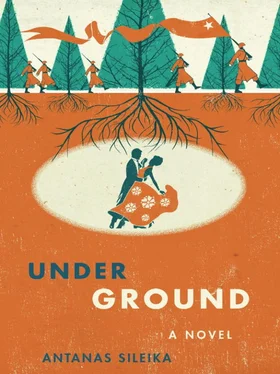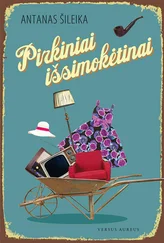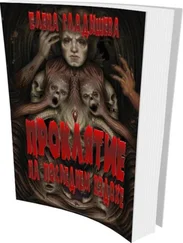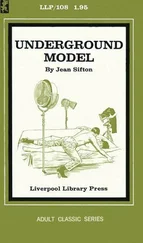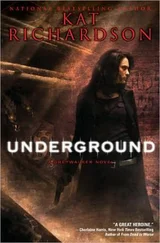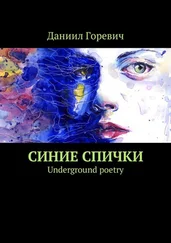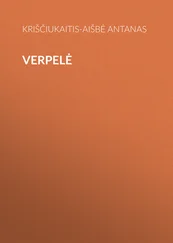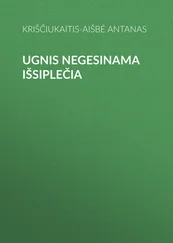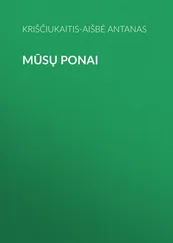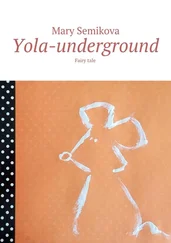It was unbearable to speak of these things, and so they whispered about other things, of people they had known and what had happened to them. They whispered under the sound of the radio. Time and again Lukas would stop to look at the boy. Time and again Elena reminded him that he could do as he chose.
Lukas sat with Elena through most of the night. He wanted to drink up the sight of the boy and the sight of her as well. He wanted to wait until there was a little light on the street, and when he saw the window begin to brighten, he looked long at the boy again and then returned to what would happen next.
“What should I tell them about you?” he asked.
“You must hold out for a while. You can’t tell them everything immediately or they won’t believe you. I was a courier once, you can say that. Say you came here hoping for a letter from your parents.”
He was afraid to kiss her because he was afraid of waking Jonas, but he had been afraid to kiss her before, years earlier, and he had found a way. Now he found a way again. She let him, heedless of who might be watching. He kissed the boy too, who awoke and cried out, pushing him away before settling back into his mother’s shoulder.
“I’m going to tell you an address,” said Lukas, “of a place in America. If you could get a letter out there somehow, I’d be very grateful.”
“I don’t know what I can do.”
“It wouldn’t have to be right now. Whenever you can. Even if it’s years from now. But you mustn’t write down the address, so you’ll have to memorize it.”
“All right.”
He gave her an address in America, the address of Monika’s uncle. He also told her what to say to Lakstingala if she had a chance to speak to him. They talked about the people they knew who had died. After the music from Warsaw ended for the night, she left the radio on and it gave off a sound of static that she did not turn down.
“I understand you were out of the country, in the West,” said Elena.
“Yes. I was in Sweden and Germany and France.”
“Tell me about those places.”
He described Stockholm and Paris and the towns he had visited in Germany. She asked him questions for a long time.
“It’s good to know life goes on somewhere,” she said.
Then much too soon it was full dawn. Lukas looked at the brightening window and then at Elena.
“Please don’t cry,” said Lukas.
“Why not?”
“Because if you do, I will too, and I don’t want to be taken with my eyes full of tears.” He paused. “Will you tell Jonas about me? Not for a while, but later, when he’s old enough to understand. Tell him I saw him and admired him and I knew he would be all right.” He could not say more for a moment.
“I will, I will.”
“And if you can, tell him about my parents’ farm by Rumsiskes. When this is all over, maybe someone will be left alive, my mother or my sister. It would be good for him to know there is family somewhere.”
“I will.”
It was all so hard. He had been willing to suffer, but he did not know it would be like this.
He wanted to stay longer, but it was time to go. He touched her hand and kissed her wet cheeks. Elena could not help herself after all. Neither could he.
Lukas went to the door and opened it. He wasn’t sure, but he thought there was a little movement at the periphery of his vision. He kept his hands visible but turned back to face the two of them at the table before he closed the door.
“I always loved you, Elena,” he said. Then he stepped out from the underground and turned to face the street.
CANADA – LITHUANIA
AUGUST 1989
THE OLD STORIES stayed underground in Lithuania, and others like them in Estonia and Latvia, in Poland and Ukraine and other places. As for knowledge of them in the West, they were forgotten in the malls, suburbs and high-rises of America. A generation of immigrant children grew up and joined the mainstream, forgetting their sources, the springs and rivulets they had come from, except for a few who were caught in the eddies, turning endlessly, in neither the present nor the past, mulling over the unknowability of history and the banality of the present.
By 1989 the Soviet Union was collapsing, although no one guessed it at the time. As the restrictions eased, every trembling mole was digging its way out of the underground and brushing itself off. Seeds long dormant began to sprout and reach out for the light. Messages began to travel again. Many went to addresses where no one lived any longer, but some found their way to the proper destinations.
In early spring of that year, a letter arrived in the mailbox of Luke Zolynas, a high school French teacher who lived in Toronto, Canada. He was a tall, gentle man with eyeglasses that slipped down his nose when he was in a rush, to the amusement of his students, and he was always in a rush because he had three children between the ages of two and eight and his wife worked in a bank and he ran both the drama club and the chamber quartet after school. His father had died young of lung cancer and his mother in a car accident a few years after that. Luke would have liked to know more about his past, but his parents were dead, his one aunt lived far away, and anyway, he was busy with everyday life.
The letter came from Jonas Petronis in Lithuania, and it explained that the Lithuanian basketball coach had discovered they were half-brothers. Could Luke come for a visit?
Luke was startled, then curious, and eventually ambivalent about this alleged half-brother, who appeared to disrupt the busy flow of his life. Everyone came from somewhere, and memory was a mixed blessing. Look what happened to immigrant kids who didn’t forget: they became enthusiastic ethnics, slightly comical figures in folk costumes, objects of derision. Or else they nurtured ancient hatreds and let them fester.
Luke Zolynas loved Canada, in a way, not that he would ever put it in those words. But to him it never felt altogether like home. Sometimes he wondered if he’d landed in the wrong country, and now this letter confirmed some complications about his origins.
Luke’s father had been a very discreet man. His one weakness was cigarettes, which he sometimes held, maddeningly to Luke, between his thumb and forefinger, as if he were a villain in a European movie. He smoked a pack and a half each day, never leaving home without a spare pack in his briefcase. He’d worked for a couple of decades as a clerk at city hall. He didn’t talk a lot about his own origins.
Luke’s mother was a nurse who was often out, working shifts. His mother and father had always had a cordial if slightly cool relationship, unlike the relationships of most of his parents’ friends, who bickered passionately. His parents had had separate bedrooms for as long as Luke could remember. They even took their vacations separately.
It had never occurred to Luke that the man who helped raise him, whom his mother had always called Zoly, was not his biological father. But after he received the letter from Lithuania, when Luke phoned his French aunt in Lyon, she confirmed that Zoly was his stepfather, and told him a whole series of stories about his mother’s first husband. In a second letter from Jonas Petronis, Luke learned the outlines of another part of his father’s life.
In late June of that year, after school was out, Luke flew to Vilnius, where an athletic man with curly brown hair and thick eyeglasses as well as an atrocious plaid suit met him at the airport intending to drive him by car to the town of Merkine, where he lived.
Jonas Petronis was not exactly warm but not exactly hostile either. He was ambivalent too. He seemed to study Luke’s good shoes and luggage too long, to resent him a little. On the drive to his hometown he explained that any such visit would have been against the law a year earlier, when the old travel restrictions were being enforced and tourists were not permitted to leave the capital. It was still against the law technically, but no one was really paying attention anymore.
Читать дальше
